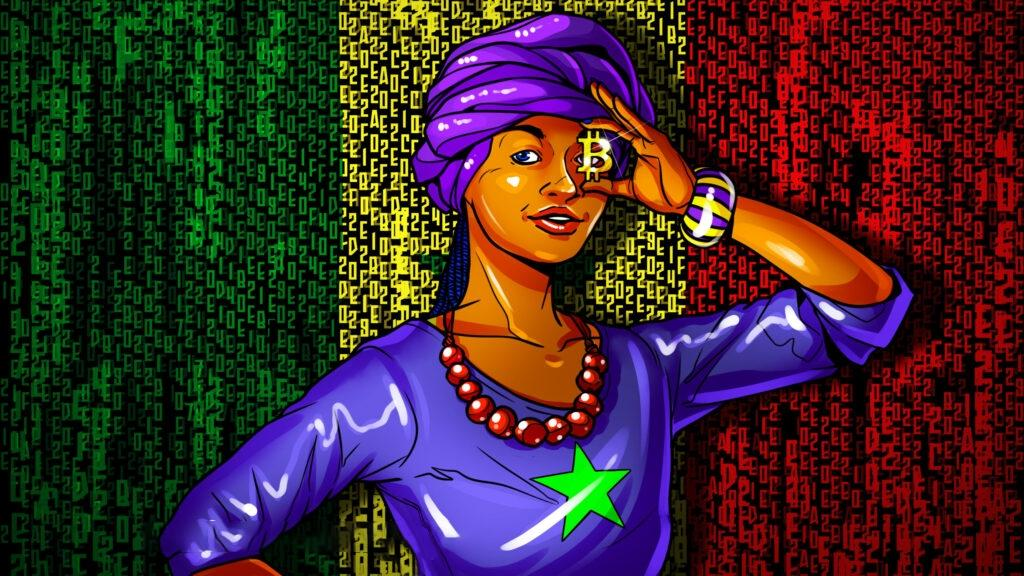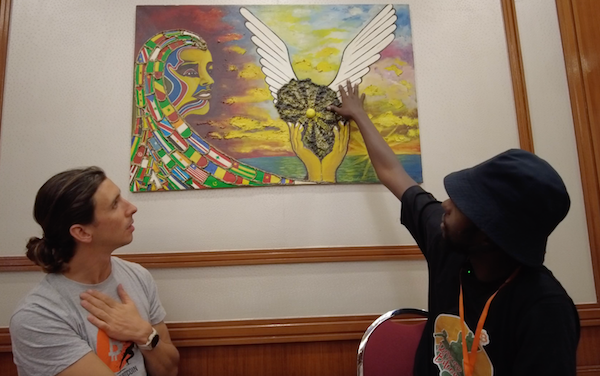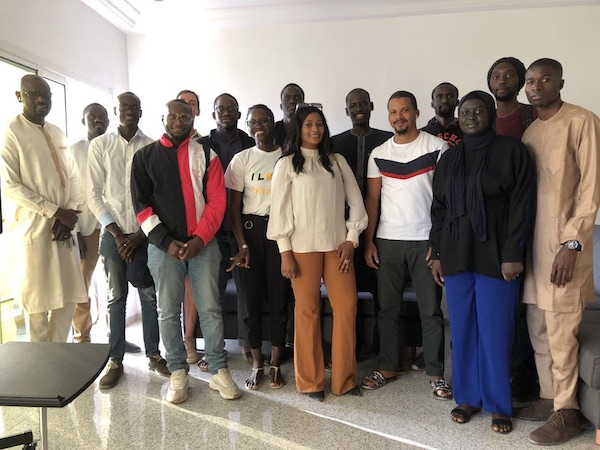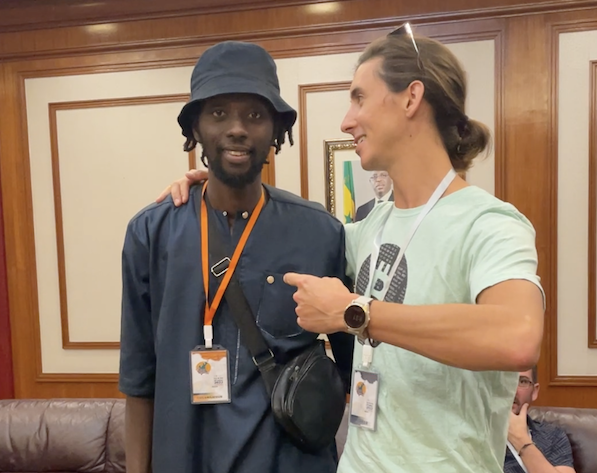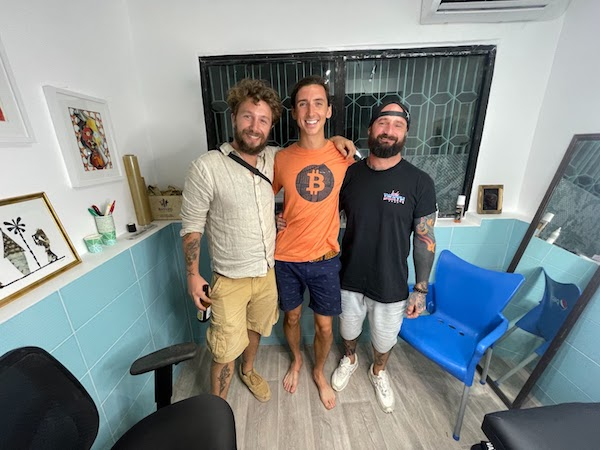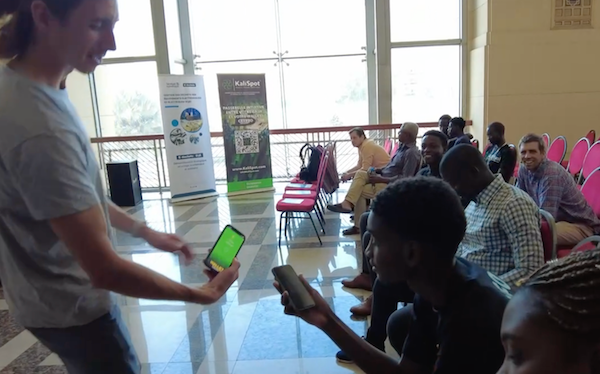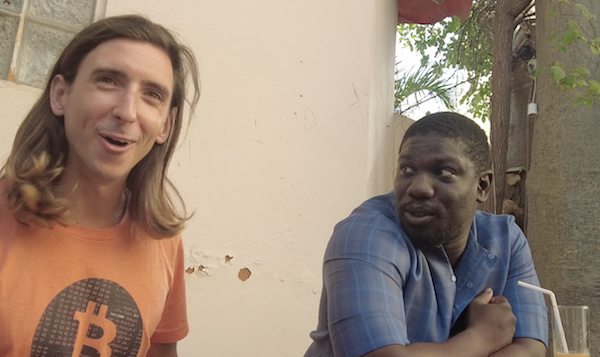Senegal Birth of Hope for the Next Bitcoin Beach
Senegal Birth of Next Bitcoin BeachCompilation: vand
Layout: Xiaolu
Senegal is a West African country that has evolved from a wasteland of fraud, sovereign interference, and transportation inconvenience into a prosperous nation with a thriving Bitcoin economy.
The capital of Senegal, Dakar, hosts the annual Bitcoin conference for pan-African countries, with over ten businesses and merchants accepting BTC payments. There is also a local PTOP BTC exchange and various emerging communities that co-host events.
- Insights from Segregated Witness Bitcoin’s Stagnation and Layered Scalability
- MARA CEO Bitcoin halving narrative is a fantasy, but Bitcoin is the best Layer 1.
- MARA CEO Halving narrative is a fantasy Bitcoin is the best Layer 1
Even in a bear market, within ten months of hosting its first offline event, Dakar has organized BTC Days, and activities related to BTC have been continuously appearing. Why has BTC suddenly become popular in Senegal? Will this country move towards “hyperbitcoinization” or bring about a small-scale “mass adoption”?
Will Senegal become the next country in the Asia-Africa-Latin America region to follow in the footsteps of El Salvador? I want to know the answer. I missed the birth of Bitcoin Beach in El Salvador in 2019. But I don’t want to miss out on the grassroots Bitcoin circular economy in West Africa.
Let’s find out what it would look like if Senegal also gave birth to a Bitcoin Beach.
Monetary Colonialism and the CFA Franc
The French created the CFA (West African CFA Franc) currency system and control the exchange rate. They even design and print the banknotes used in Africa. This means that a French person in Clermont-Ferrand may have never set foot in Africa, but they design CFA banknotes used by 13 countries and millions of Africans.
The West African CFA Franc is currently pegged to the Euro at a fixed exchange rate of 655.957 to 1. In 1994, the exchange rate with the former French Franc was drastically reduced from 1:505 to 1:100. With the instigation of France, they cooperated with the World Bank and the International Monetary Fund to create “currency devaluation,” eradicating the savings of the Senegalese people.
Most importantly, French officials serve as members of the central bank board of the Francophone African region and have significant powers, including veto power.
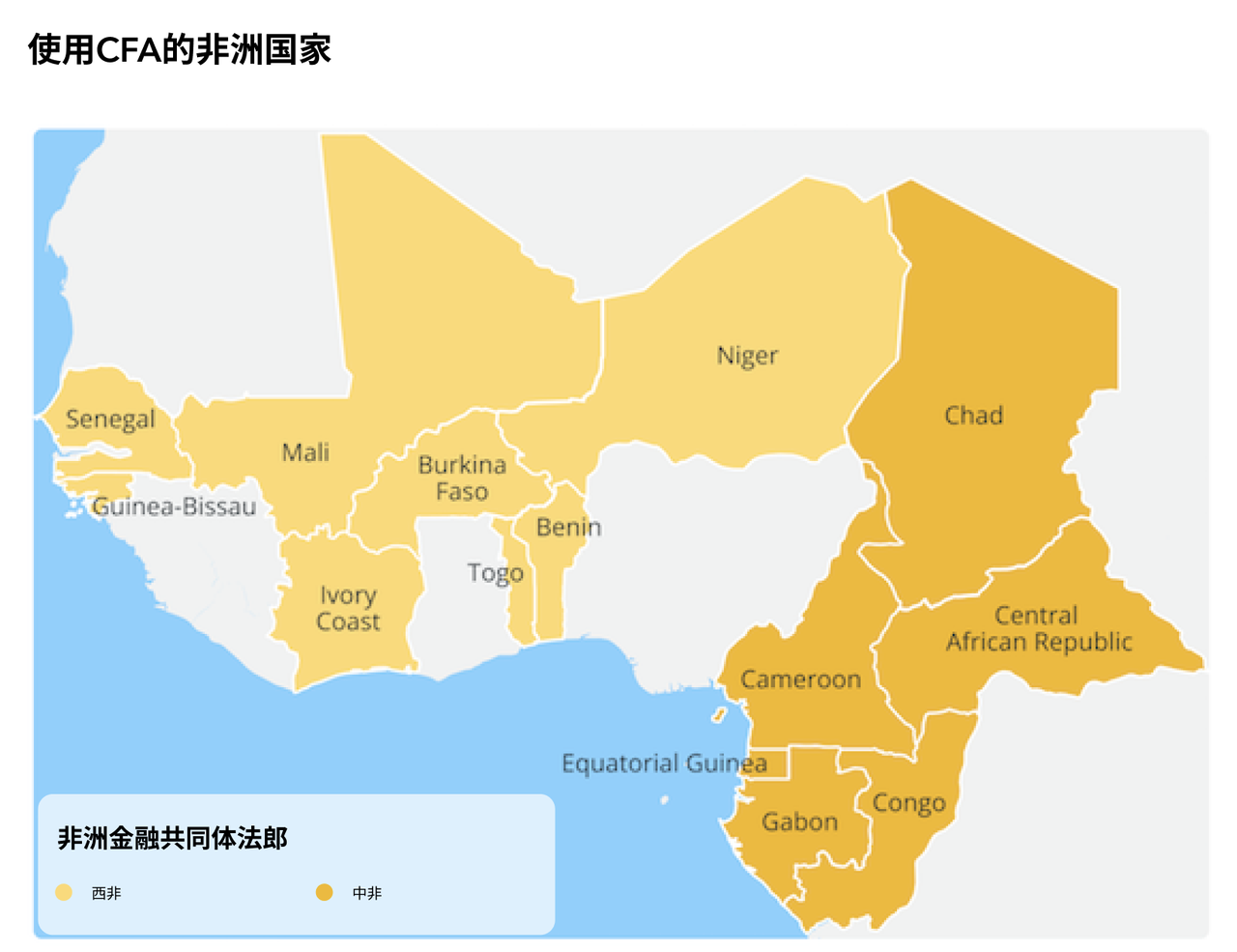
Alex Gladstein of the Human Rights Foundation once explained, “Unlike a typical fiat currency system, the CFA system is much more insidious. CFA is monetary colonialism.”
From Cuba to Turkey, from South Africa to Serbia, I have never seen a greater need for currency liberation than in Central Africa or West Africa, and the best option is BTC.
Birthing the Next “Bitcoin Beach”
In January 2022, I noticed on Twitter that several bars in the diaspora area of Dakar, the capital of Senegal, had started accepting BTC payments. You can buy pancakes or bissap (a refreshing local drink made from hibiscus flowers) through the BTC Lightning Network while watching the waves on the beach.
This immediately reminded me of El Salvador’s “Bitcoin Beach” initiative, which aims to make Bitcoin the legal tender in El Salvador. It is exciting to think that Dakar could potentially have its own “Bitcoin Bars”.
At that moment, I was eager to talk to people who are dedicated to the adoption of BTC.
Merchants in Dakar dedicated to accepting BTC
Nourou (alias) is a tall and soft-spoken Senegalese man who spends most of his time working in France. He is a unique Bitcoin advocate.
Nourou pointing to the wings of Africa during an interview
Nourou returned to Senegal during the COVID-19 outbreak. However, the chaos caused by the pandemic did not affect his dream of making Bitcoin the preferred currency in his hometown.
He returned to Senegal in 2021 and found that his friends and even family members had lost most of their savings due to Ponzi schemes like PetronLianGuaiy and other popular cryptocurrency scams in Africa. So, he established the Bitcoin community in Senegal.
“I was the first to participate in the Space held on Clubhouse, a social app. At first, we only had three or four people, but I insisted on holding two Spaces a week, and then once a week. In the past, there were 10, 20… or hundreds of people listening,” he told Cointelegraph about his efforts.
P2P, pure use of BTC
In February 2022, when I was traveling in Senegal, I attended Senegal’s first Bitcoin meetup. It was a milestone event, as previous meetups were held on Twitter or Clubhouse. I was also amazed by the level of attendees.
The room was filled with Bitcoin purists, Bitcoin maximalists, entrepreneurs, central bank presidents, and even professors from the best university in Dakar. This atmosphere was in stark contrast to the Bitcoin meetups I attended in Europe or the United States, which, frankly speaking, were gatherings of white men and millennials singing the death of fiat currency.
February 2022, Senegal's first face-to-face BTC meetup. Nourou (Nourou) is the second from the right, and I am the fifth from the left (back row).
I also saw Nuru introduce three more restaurants on the Bitcoin network. Interestingly, many merchants are using Bitcoin in its purest form: a peer-to-peer cash system.
They accept payments based on Bitcoin or the Lightning Network, while also holding Bitcoin with the aim of using it as the base currency in the circular economy. Nuru is developing an app that allows merchants to convert cash into local currency, enabling them to obtain cash when needed.
In March 2022, I left Senegal with joy. I was inspired by something: in the places where Bitcoin is most needed, Bitcoin believers invest their time and energy to educate others about money and the knowledge of Bitcoin.
In August 2022, Nuru suddenly sent me a text message saying that he plans to host a Bitcoin forum in Senegal, called Dakar Bitcoin Days. This will be the first time Bitcoin enthusiasts from around the world gather on the African continent to share their passion for Bitcoin and discuss how to promote the adoption of BTC locally.
Dakar Bitcoin Days
Dakar Bitcoin Days brings together Bitcoin enthusiasts and economists from all over Africa. Bitcoin enthusiasts from Cameroon to Congo, from Mali to Ivory Coast to the Central African Republic, gather here. When interviewed, Nuru pointed to the African continent and said, “If we work together, Africa will soar.”
Before the conference started, Nuru backstage
Dakar Bitcoin Days features speeches in three languages: English, French, and Wolof. French is the official language of Senegal, while Wolof is the most widely spoken language to date. The activities in Wolof attracted the most participants.
This event is also suitable for beginners, covering topics such as economics, finance, security, and basic knowledge of Bitcoin. Experts will hold group discussions on cryptography, as well as debates such as “Is Bitcoin Halal?” to provide insights into Bitcoin culture in Senegal, a country where 97% of the population is Muslim. The conference was packed with students and young people.
Nuru shared his vision for Senegal with me. He explained that Senegal will lead West Africa out of the darkness of monetary colonization, and decentralized dissemination of Bitcoin information in Africa must also be achieved.
I want the message to switch. Africa is not a country — it is a continent. That’s why we call it Dakar Bitcoin Days: If you come to Senegal, you will meet Senegalese; if you go to Mali, you will meet Malian people.”
There may be some similarities between different countries, such as shared history and overlapping cultures, but Africa is as diverse as Europe. Activities, like Bitcoin, spread in a decentralized manner and are conducted in a distributed manner. Let every region in Africa adopt Bitcoin.
Bitcoin in Senegal
During the conference, I also interviewed a French expatriate bar owner who accepts Bitcoin payments. The bar recently started accepting Bitcoin. Although completely unfamiliar with decentralized currency, Gary (the owner) was happy to see new customers coming to the bar because of Bitcoin. When I spoke to him face to face, I managed to convince him to accept Bitcoin payments at his other tattoo shop.
A tattoo parlor now accepting BTC.
Praïnha, managed by Renée Laraise, the coach of the Senegal surfing team, is the first restaurant in the region to accept Bitcoin. Surfing, as one of the most outstanding sports activities in Senegal after football, makes him not only a surfing coach but also a spokesperson for the community.
I also interviewed the Bitcoin Mom. For three years, she has been exchanging fish for Bitcoin along the Atlantic coast. In a country where cash is king and banking services usually serve the rich, exchanging fish for Bitcoin is a visionary choice. Banks in West Africa usually charge high fees and have strict requirements for users. For example, withdrawing cash may cost several dollars.
During my second visit to Senegal, I gave Bitcoin to over 70 people. The process was simple: I had them download a Lightning wallet, usually Satoshi Wallet, and then they clicked receive.
The wallets are custodial, which means they don’t actually hold the keys to the Bitcoin. But they trust that the Satoshi Wallet won’t run off with the funds like Sam Bankman-Fried. For beginners, this is already a good starting point.
I sent them a few thousand satoshis each, equivalent to one or two dollars in Bitcoin. I found that distributing BTC in Senegal was easier compared to other countries I have traveled to. People are eager to get money and eager to learn. They want to save with a currency that is not as easily stolen or devalued as the CFA franc.
I gave away Bitcoin for free to conference attendees. From the smiles of onlookers, it was evident that this has become part of the conference entertainment.
I gave BTC to taxi drivers on the beach, sidewalks, during the conference, and to waitstaff at restaurants and bars, as tips.
In most cases, I send Bitcoin to young people, boys and girls over 16 years old, and young men. The average age in the United States is about 40 years old, while the population composition in Senegal is very young. If a mobile-native, internet-based currency is given the right to take off in Africa, it is not surprising that it will develop rapidly.
After experiencing these, the idea of Bitcoin’s circular economy taking off in Senegal becomes even more believable. People want Bitcoin; but there are no exchanges available for purchase, and international tourists coming to Senegal use Bitcoin for peer-to-peer payments. Therefore, Bitcoin can become a peer-to-peer currency in Senegal as expected in its whitepaper.
Mobile Payments Meet the Lightning Network
In addition, mobile payments have already flourished in Africa. The development of mobile payment companies started with the rise of M-Pesa in Kenya, and then mobile payment companies emerged like mushrooms all over Africa, just like Apple stores in European cities. Nowadays, most Africans have smartphones and may not have regular electricity or free drinking water, but they have the internet.
If there is no internet, payments can also be made via SMS. You only need to send a credit SMS to send and receive payments, similar to bank transfers. The largest mobile payment company is called Wave.
Wave logos can be seen everywhere in taxi companies, restaurants, bars, and cafes. It is a bit like the Lightning Network, but slower and more expensive, and it uses local currency.
I tried to find a Wave employee to evangelize them to enter the Bitcoin network. I was very lucky to meet a Wave employee while watching the World Cup in a bar. I immediately had him download a wallet and sent him some Bitcoin. I connected to the bar’s WiFi and sent him Bitcoin. He was impressed and said he would come to the meeting the next day, but I never saw him again.
There is an interesting story. When interviewing the marketing director of Wave, he shared his experience of meeting Satoshi Nakamoto and going out together in Senegal.
Your expression when someone says they know Satoshi Nakamoto.
Senegal has some young digital natives, Bitcoin leaders, and respected mentors in social status. Annual conferences are also held, and more and more merchants are starting to accept Bitcoin, and as indicated: mobile remittances are also acceptable in tradition.
This is the face of Bitcoin in Africa, and it is also a way for the African continent to surpass developed countries. So why can’t we surpass mobile currencies through the Lightning Network?
We will continue to update Blocking; if you have any questions or suggestions, please contact us!
Was this article helpful?
93 out of 132 found this helpful
Related articles
- Interpreting the Current Situation of Cryptocurrency Markets Outside the United States
- Block space is a scarce commodity, how to objectively evaluate it?
- How do the interest rates and future prospects of the Federal Reserve affect the cryptocurrency market?
- Data What is the crypto market like outside of the United States?
- Dialogue with Circle CEO How can USDC recover the market lost due to SVB’s bankruptcy?
- Common situations and criminal defense strategies for embezzlement of executive positions in the cryptocurrency industry
- 3 NFT markets restrict ‘Stoner Cats’ transactions after SEC takes action
